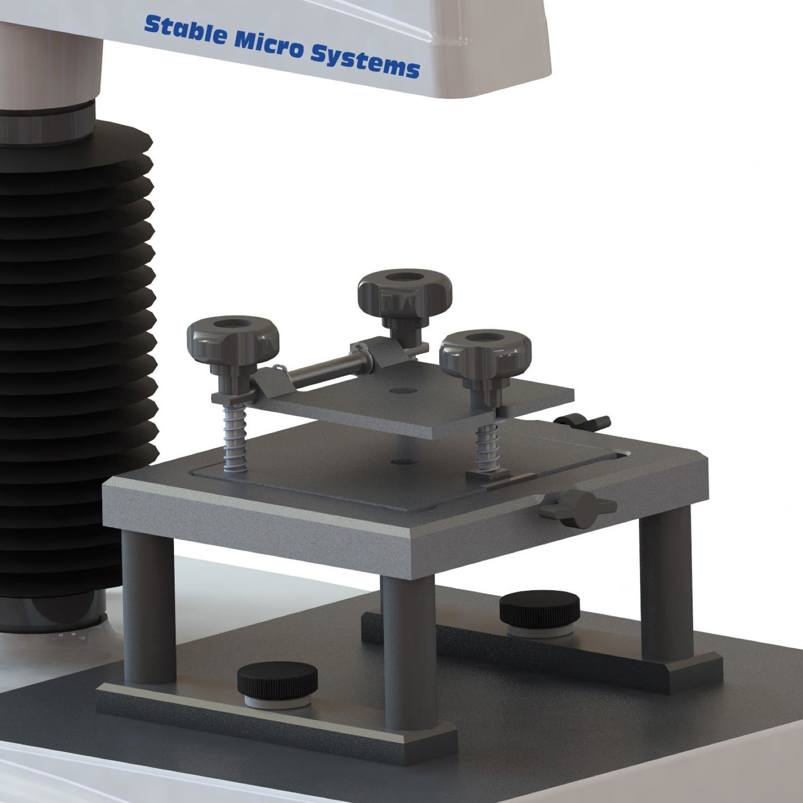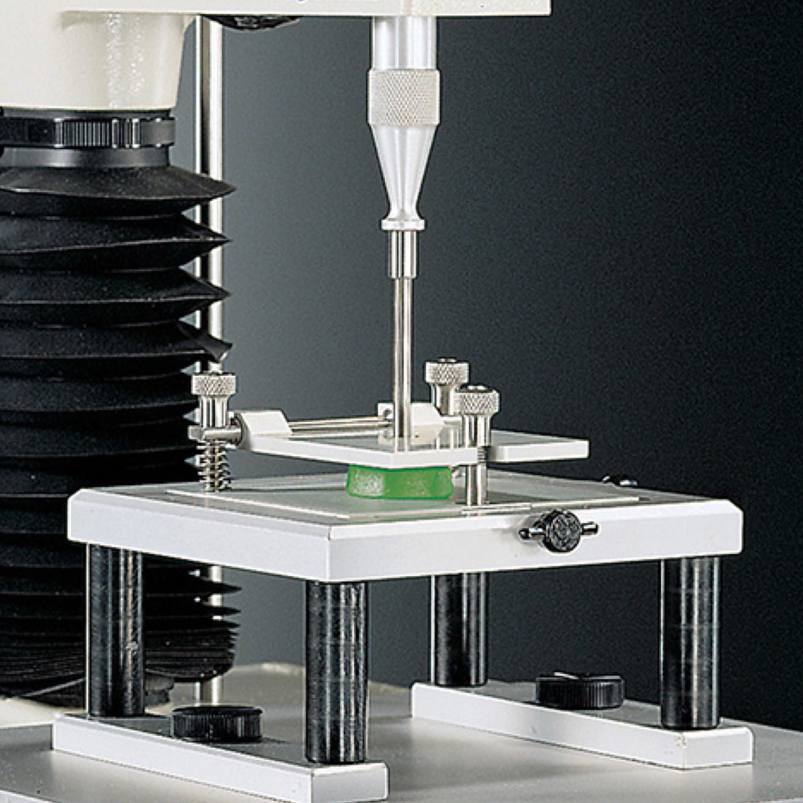Product overview
When penetrating a sample during a test it is common that the sample sometimes needs to be held down manually in order to avoid it being lifted up with the withdrawing probe. The penetration of a confectionery sample is typical examples when this may occur. The resulting measured forces of this occurrence will be displaying the weight of the material (and/or its supporting packaging) being lifted rather than the forces necessary to withdraw from the sample. If lifting of the sample occurs the graph that is obtained will not therefore reflect the entire true textural profile of the sample.
The holder comprises a base plate on which a second plate is supported by spring loaded screws. Both plates have 10mm holes in their centres. A sample is located between the plates so that a portion of it is exposed. This allows complete penetration and withdrawal from the sample, through the holes in the plates, whilst avoiding sample slippage or movement.
Ideal sample form
In order to measure the adhesion properties of a product it must be held down so that when the measuring probe withdraws from the product the product itself is not lifted up and therefore the forces measured are as a result of the separation of the two surfaces. This accessory is a holding device for samples in order for the adhesion properties to be measured.
Benefits and limitations
- When needing to assess the stickiness of a product e.g. confectionery the product needs to be held down otherwise the sample would be lifted up when the probe attempts to withdraw.
- The aperture of the top plate is 9mm and therefore limits the test to that of penetration using a probe with a maximum diameter of 8mm.
Technical information
Installation
Full installation instructions are provided within the Education Zone of the latest Exponent/Connect software version and on the technical information sheet accompanying this product.
Chemical compatibility
Stable Micro Systems probes and attachments are commonly made from four materials: anodised aluminium (AA6082 T6), stainless steel (316 T), Delrin (acetyl copolymer) and Perspex (polycarbonate).
In general use, probes and attachments made from these materials will be suitable for testing food products and inert non-food materials.
The four materials listed above are not universally resistant to all types of chemicals and as such the compatibility of the probe/attachment material with the product (to be tested) must be established to prevent damage to the probes and attachments. If the compatibility of the product with the probe is unknown to the customer then the chemical information about the product (Material Safety Data Sheet or Product Data Sheet) should be submitted to Stable Micro Systems. Stable Micro Systems will then assess the suitability of the probe/attachment material for use with the product and advise accordingly. If this advice is not sought then Stable Micro Systems will not accept liability for probes/attachments damaged by chemical attack from the product being tested.
Cleaning and maintenance
May be cleaned in warm (or hand hot) water using a mild detergent. A soft brush may be used but abrasive cleaning aids should be avoided. Stable Micro Systems products should not be microwaved or cleaned in a dishwasher.
Each component should be wrapped separately when stored, to avoid scratching or chipping. This will safeguard against any unnecessary damage to the accessory.


